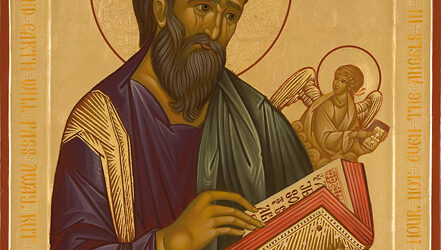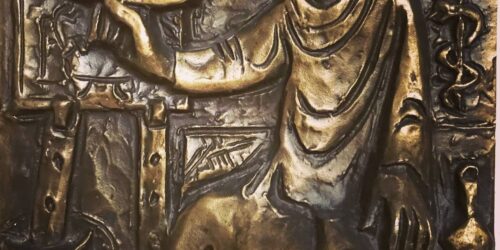Slides on the significance of the authorship of Acts for its interpretation
Here are the slides from the talk I gave today at a fascinating conference on Pastoral Implications of Pseudepigraphy and Anonymity in the New Testament at the Lanier Theological Library. Looking forward to lots more to come over the next two days. Thoughts and comments are welcome!



Thanks for sharing! There’s an interesting question about the author and the nature of his relationship with Paul, even if one does not take the “we” passages to be indicative of Luke’s own eyewitness account. If the traditional view on authorship is right (I see no reason to doubt that the author is Luke the physician), but he was not a travelling companion to the extent that the traditional view surmises (i.e., the “we” passages are a source), then he is one of network of individuals (incl. Barnabas, Silas, Timothy, etc.) who wrote in (Silas and Luke) and travelled through the Mediterranean in not only “Pauline,” but “Jerusalem” (i.e., Petrine, even if this was in Rome) circles as well. For all the old contentions that Paul and Peter are utterly irreconcilable, there may yet be a nice window into early unity of mission in this unsung circle, perhaps quintessentially represented by Luke.
Thanks for your content – will the Lanier talks be publicized on their channel?
Thanks Nathan. Yes, I agree that there is a window into the early believers’ unity in mission here. I believe the papers are being filmed and will be available in due course through the Lanier YouTube channel. There’s also the hope to produce a book, although that will clearly take longer than putting up the videos.
Excellent, thanks for the info. All the best
From the observations of Baum and Campbell we can conclude that the author of Luke-Acts combined the modest anonymity of the gospels genre with the style of self-reference of other Greco-Roman writers. Thus he switched freely between referring to himself using third person plural and first person plural. There is no reason to doubt that the author was a companion of Paul and was present for most of the events of the second half of Acts.
Would it make a difference if we could show that the author was the Λουκιος (Λουκας) of Rom 16:21, and was the trusted brother of 2 Cor 8:18-19?
As for pseudepigraphy, we need to have the courage to call out the forgeries in the NT.
Have you seen Simon Gathercole’s important article arguing that the Gospels were never anonymous? It’s worth reading: Gathercole, Simon J. “The Alleged Anonymity of the Canonical Gospels.” JTS ns 69 (2018): 447-76. He gave a short version of this as a paper today at the conference.
Thanks for posting these. I really enjoyed your paper. Very helpful!
Thanks Ched!